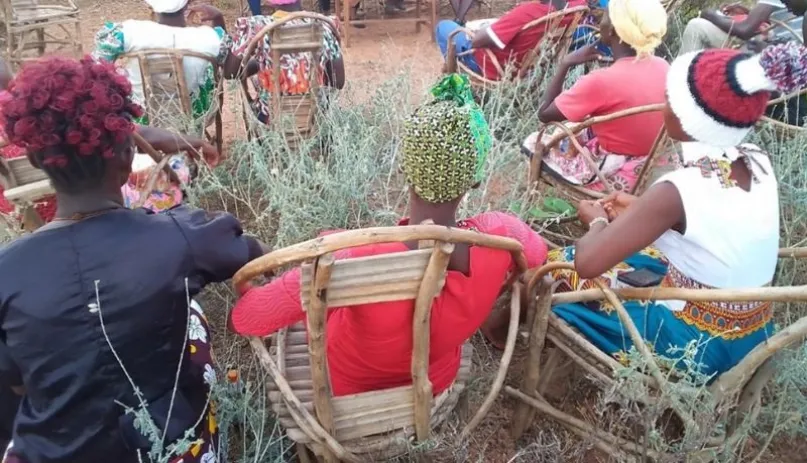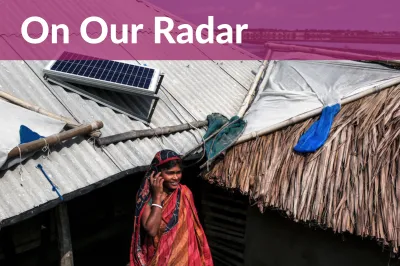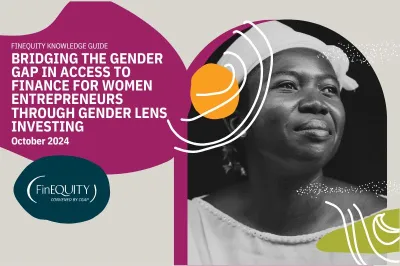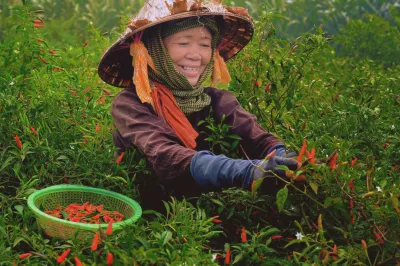Gender Responsive Approaches to Building Women’s Climate Resilience in Africa

As I reflect on FinEquity Africa Annual Convening 2024 in Addis Ababa Ethiopia climate session which looked at the intersection of social norms, gender dynamics, and climate change for women across the continent, my thoughts continue to linger on how climate shocks are intensifying existing gender gaps. In the lead-up to this event, the Earth experienced the highest temperatures ever recorded. This global trend is expected to intensify other climate disasters like floods, hurricanes, and cyclones. With the continuous emission of greenhouse gases, these extreme events are likely to become more frequent.
In sub-Saharan Africa, the majority of all women employed (over 60%) engage in farm activities.
During climate change crises, women risk being exposed to various shocks such as sexual harassment, gender-based violence, health issues, and loss of livelihoods and businesses among other risks. Financial inclusion can play a critical role in enabling autonomous adaptation and building grassroots resilience to climate change, especially for women.
Women’s coping mechanisms after climate shocks can introduce new layers of gender-based vulnerabilities
Climate change, gender, and financial services are inextricably linked. Women, particularly those living in rural regions, bear the primary burden of ensuring food security, managing household water supplies and energy consumption for heating and cooking. As natural resources are deprived, the challenges to women’s sources of livelihoods intensify. For instance, women are required to travel far distances to fetch water and firewood. This, in turn, reduces the amount of time women have to develop climate adaptation strategies. As climate change intensifies, there will be greater risks for women beyond the immediate effects, such as greater risks of gender-based violence, malnutrition, and early marriages for girls.
In addition, women’s use of informal financial services results in weaker adoption of climate-resilient practices. Studies have found that access to formal financial services could help women to transition and build resilience during climate crises if they are well designed and delivered.
Climate-smart financial solutions should be tailored to reflect economic, cultural, social context of women to match aspirations and desires
The FinEquity Africa convening brought together FinEquity members to demonstrate climate-smart financial solutions that are helping build women's resilience in the region in times of climate change. A session on climate-smart financial services co-facilitated by FSD Network, FSD Africa, and Village Enterprise gave members a chance to learn and share tailored workable solutions emerging from the region.
FSD network highlighted cases of how FSPs and fintech could start by unraveling the many layers of social norms in the design and delivery of climate-related financial solutions and also bundling products and services. For example, an early warning system linked to a portfolio of financial products, such as flood risk information bundled with flexible credit, insurance and/or targeted savings products, as well as non-financial services such as education/training interventions could help women to mitigate and manage disasters. FSD Network also demonstrated how women with access to financial services, such as insurance and credit, typically have stronger resilience and economic welfare, leading to economic independence and better recovery from natural disasters. Addressing and including women fairly in the design and execution of existing climate financing instruments would assure their sustainability and efficacy.
Village Enterprise shared how they are adapting the graduation economic inclusion model to help women build resilience to climate shocks. Through regional partnerships, they are encouraging the take-up of climate-smart agriculture technologies by women smallholder farmers. Additionally, women are trained in entrepreneurship skills to expand and strengthen livelihoods as a climate adaptation strategy.
Innovative gender bonds could potentially close the climate finance gap for women
FSD Africa presented an opportunity for financial service providers to leverage innovative gender bonds to support the roll-out of products that help women cope with climate shocks and stresses. Gender bonds direct financing into projects that reduce gender inequalities and promote women's empowerment. The market system approach that FSD Africa outlined has the potential to unlock the gender financing gap that already exists for many African women.

Based on these conversations, it is clear that the design and delivery of climate-smart finance solutions that will help women to build resilience will require approaches that:
- Are gender-responsive by addressing the specific needs of women, considering their barriers and aspirations, and increasing their access and utilization of products. Once women are empowered by such solutions, they are able to just transition in times of climate change and build resilience.
- Leverage innovative partnerships (public and private). Utilization of innovative partnerships in the design and delivery of climate-smart financial solutions results in business viability.
- Close gender climate financing gaps through market system approaches such as exploring innovative financing approaches to drive gender equality, like in the case of gender bonds.


